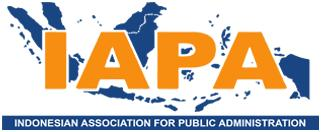Local Empowerment, Global Attraction: Sustainable Strategies for Rural Tourism Development in Indonesia Through Village-Owned Enterprise
Abstrak
Promoting rural tourism is crucial for Indonesia as it seeks to balance economic growth with environmental sustainability and social responsibility. However, revitalizing community-owned enterprises to develop community-based rural tourism presents a considerable challenge. This key strategy for rural economic development aims to align the value of natural resources with economic benefits. This paper explores a case study of BUMDES Sukamakmur located in Sirnajaya Village, West Java, with an emphasis on its natural and agricultural assets. The village features several resources, including a coffee plantation, which offers opportunities for economic development. The study seeks to analyze how rural institutions contribute to the establishment of a sustainable rural tourism model through the implementation of value-chain and network strategies. A qualitative approach with a single case study was conducted, involving focus group discussions among key stakeholders. A network model is proposed to support rural tourism development through empowering local community institutions, such as village-owned enterprises. The model guides sustainable rural tourism development in other Indonesian villages or countries facing similar challenges. This research contributes to understanding the role of rural institutions and their best practices in achieving and sustaining rural tourism development while identifying effective tourism strategies.
Kata Kunci
Teks Lengkap:
PDF (English)Referensi
Antlöv, H. (2003). Village Government and Rural Development in Indonesia: The New Democratic Framework. Bulletin of Indonesian Economic Studies, 39(2), 193-214. https://doi.org/10.1080/00074910302013
Aquino, R. S., Lück, M., & Schänzel, H. A. (2018). A conceptual framework of tourism social entrepreneurship for sustainable community development. Journal of Hospitality and Tourism Management, 37, 23-32. https://doi.org/10.1016/j.jhtm.2018.09.001
Arifin, B., Wicaksono, E., Tenrini, R. H., Wardhana, I. W., Setiawan, H., Damayanty, S. A., Solikin, A., Suhendra, M., Saputra, A. H., Ariutama, G. A., Djunedi, P., Rahman, A. B., & Handoko, R. (2020). Village fund, village-owned-enterprises, and employment: Evidence from Indonesia. Journal of Rural Studies, 79, 382-394. https://doi.org/10.1016/j.jrurstud.2020.08.052
Bello, F. G., Lovelock, B., & Carr, N. (2017). Constraints of community participation in protected area-based tourism planning: the case of Malawi. Journal of Ecotourism, 16(2), 131-151. https://doi.org/10.1080/14724049.2016.1251444
Bramwell, B. (1994). Rural tourism and sustainable rural tourism. Journal of Sustainable Tourism, 2(1-2), 1-6. https://doi.org/10.1080/09669589409510679
Dolezal, C., & Novelli, M. (2022). Power in community-based tourism: empowerment and partnership in Bali. Journal of Sustainable Tourism, 30(10), 2352-2370. https://doi.org/10.1080/09669582.2020.1838527
Gartner, W. C. (2004). Rural tourism development in the USA. International Journal of Tourism Research, 6(3), 151-164. https://doi.org/https://doi.org/10.1002/jtr.481
Ismanto, S. U., Indira, D., & Santoso, M. B. (2023). Community Involvement Based on Community-Based Tourism Principles in the Development of Area-Based Tourism in Cirebon Regency. Jurnal Manajemen Pelayanan Publik, 6(2), 84-99.
Juni, J. A., Rasyidin, R., & Hadi, I. (2021). Village (Gampong) Owned Enterprises with Local Wisdom Between Opportunities and Threats in The Area Of COVID-19 Pandemic (Research at The Government Environment of Lhokseumawe City). Jurnal Manajemen Pelayanan Publik, 4(2), 128-237.
Kania, I., Anggadwita, G., & Alamanda, D. T. (2021). A new approach to stimulate rural entrepreneurship through village-owned enterprises in Indonesia. Journal of Enterprising Communities: People and Places in the Global Economy, 15(3), 432-450. https://doi.org/10.1108/JEC-07-2020-0137
Koch, T., & Windsperger, J. (2017). Seeing through the network: Competitive advantage in the digital economy. Journal of Organization Design, 6(1), 1-30.
Martinez, M. A., & Aldrich, H. E. (2011). Networking strategies for entrepreneurs: balancing cohesion and diversity. International Journal of Entrepreneurial Behavior & Research, 17(1), 7-38. https://doi.org/10.1108/13552551111107499
Miličević, K. (2021). Tourism Value Chain and Sustainability Certification. https://sustainablelabels.eu/wp-content/uploads/2021/07/2_Value-chain_K.Milicevic.pdf
Moswete, N., & Thapa, B. (2015). Factors that influence support for community-based ecotourism in the rural communities adjacent to the Kgalagadi Transfrontier Park, Botswana. Journal of Ecotourism, 14(2-3), 243-263. https://doi.org/10.1080/14724049.2015.1051537
Okazaki, E. (2008). A Community-Based Tourism Model: Its Conception and Use. Journal of Sustainable Tourism, 16(5), 511-529. https://doi.org/10.1080/09669580802159594
Owen-Smith, J., Cotton-Nessler, N. C., & Buhr, H. (2015). Network effects on organizational decision-making: Blended social mechanisms and IPO withdrawal. Social Networks, 41, 1-17. https://doi.org/https://doi.org/10.1016/j.socnet.2014.11.004
Park, D.-B., Lee, K.-W., Choi, H.-S., & Yoon, Y. (2012). Factors influencing social capital in rural tourism communities in South Korea. Tourism Management, 33(6), 1511-1520. https://doi.org/https://doi.org/10.1016/j.tourman.2012.02.005
Porter, M. E. (1986). Competition in global industries: A conceptual framework. In M. E. Porter (Ed.), Competition in global industries (Vol. Research colloquium / Harvard Business School). Harvard Business School Press.
Ruiz-Real, J. L., Uribe-Toril, J., de Pablo Valenciano, J., & Gázquez-Abad, J. C. (2022). Rural tourism and development: Evolution in Scientific Literature and Trends. Journal of Hospitality & Tourism Research, 46(7), 1322-1346. https://doi.org/10.1177/1096348020926538
Rustanto, A. E., Nurrahmah, N., & Aima, M. H. (2024). The Role Of Local Non-Governmental Organization In Managing Kahianga Tourism Village. Jurnal Manajemen Pelayanan Publik, 8(1), 1-14.
Sakata, H., & Prideaux, B. (2013). An alternative approach to community-based ecotourism: a bottom-up locally initiated non-monetised project in Papua New Guinea. Journal of Sustainable Tourism, 21(6), 880-899. https://doi.org/10.1080/09669582.2012.756493
Saldaña, J. (2021). The coding manual for qualitative researchers. The coding manual for qualitative researchers, 1-440.
Sawir, M., Robo, S., Abubakar, F., & Kamaluddin, S. (2023). Implementation Of Public Services In The Digital Era As A Public Information Media Regional Government Of Jayapura Regency, Papua Province. Jurnal Manajemen Pelayanan Publik, 6(2), 212-226.
Stoddart, M. C., Catano, G., Ramos, H., Vodden, K., Lowery, B., & Butters, L. (2020). Collaboration gaps and regional tourism networks in rural coastal communities. Journal of Sustainable Tourism, 28(4), 625-645.
Sutomo, Y. A. W., Sianipar, C. P. M., Basu, M., Onitsuka, K., & Hoshino, S. (2022). Tourism value chain: synthesizing value webs to support tourism development and planning. Tourism Review, ahead-of-print(ahead-of-print). https://doi.org/10.1108/TR-12-2021-0566
Tikkanen, J., & Halinen, A. (2003). Network approach to strategic management–exploration to the emerging perspective. Proceedings of the 19th IMP International Conference, Lugano, Switzerland,
Warouw, F. F., Rotty, V. N. J., Pusung, P. H., & Giroth, L. G. J. (2023). Review Of Smart Environment Tourism Indicator Policies In The Development Of The Likupang Tourism Special Economic Zone. Jurnal Manajemen Pelayanan Publik, 7(1), 226-240.
Watts, J. D., Tacconi, L., Irawan, S., & Wijaya, A. H. (2019). Village transfers for the environment: Lessons from community-based development programs and the village fund. Forest Policy and Economics, 108, 101863. https://doi.org/10.1016/j.forpol.2019.01.008
Yachin, J. M., & Ioannides, D. (2020). “Making do” in rural tourism: the resourcing behaviour of tourism micro-firms. Journal of Sustainable Tourism, 28(7), 1003-1021. https://doi.org/10.1080/09669582.2020.1715993
Zakaria, J. (2024). Sustainable Tourism as an Economic Development Model in Evaluation and Prospects of Priority Tourism Destination Development Policy in Indonesia. Jurnal Manajemen Pelayanan Publik, 8(2), 474-489.
DOI: https://doi.org/10.24198/jmpp.v9i1.55345
Refbacks
- Saat ini tidak ada refbacks.
Jurnal Manajemen Pelayanan Publik Indexed By:



This work is licensed under a Creative Commons Attribution-ShareAlike 4.0 International License.


















21.png)



.png)